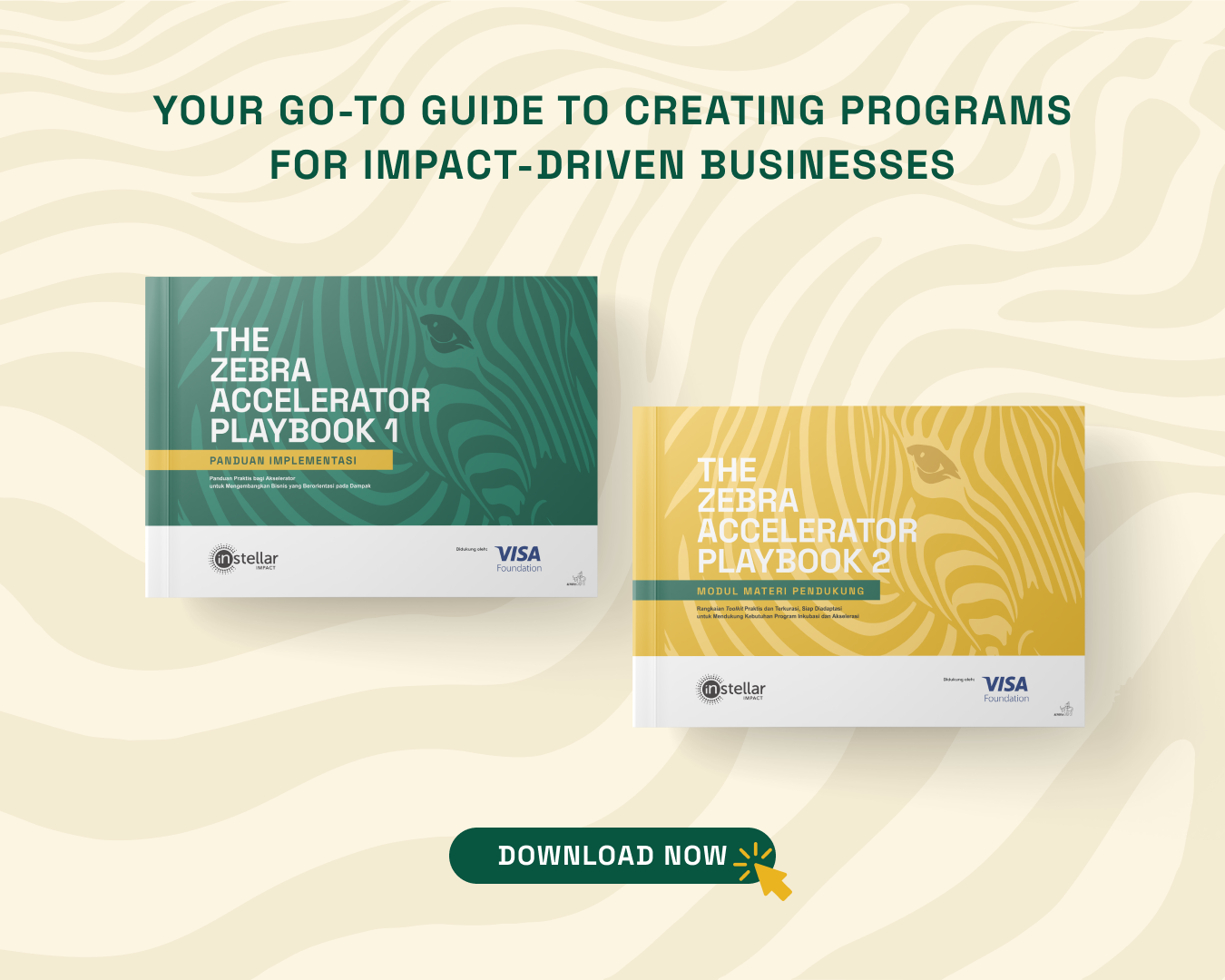Indonesian NGOs face a challenging funding landscape, with 85%–90% of funding coming from international donors, a source that is in decline due to Indonesia’s status as a lower middle-income country since 2006. In 2014, Benyamin Davis and DFAT conducted a study that highlighted the challenges Indonesian NGOs are facing in terms of financial sustainability and funding diversification. To address this challenge, Indonesian NGOs and other stakeholders wanting to support Indonesian NGOs need to rethink funding strategies and focus on diversifying funding sources. One solution is to transform the NGO into a social enterprise.
Social enterprise refers to businesses that are primarily motivated by social objectives. Instead of maximizing profits for shareholders and owners, the surpluses from these businesses are reinvested for the purposes the business wanted to achieve and the community. Here is what you can do to transform your organization into a self-sufficient organization through the social enterprise concept.
Before deciding what business your organization wants to establish, it is advisable to start by conducting an internal assessment and feasibility study. This needs to be done in order to consider all the aspects so the business can be sustainable. The aspects include top management commitment, human resources, financial resources, business competence, assets, and external resources.
After all internal aspects are ready, the next step is to carry out a feasibility study. The importance of a feasibility study is based on the organization’s desire to “get it right” before committing resources, time, or budget. It’s best to determine these in advance rather than directly taking decisions to implement the project. Conducting a feasibility study is always beneficial to the project, as it gives you and other stakeholders a clear picture of the proposed project.
There are three stages in conducting a feasibility study:
• Diagnosis Phase
These activities aim to find potential business activities that have the most feasibility. You can start by identifying the opportunity and comprehensive analysis on: the supply side (organizational capability, capacity and network) and the demand side (consists of industry/market trends, competitive landscape, consumers, and value chain). After obtaining a thorough understanding of the demand and supply side, you can review and identify the opportunities by finding the possible synergies within all stakeholders.
• Exploration Phase
In this phase, you can prioritize the line of opportunities that should be explored and test your idea to find the right business model and community development model.
• Formulation Phase
In the last stage, you can formulate and design the business roadmap so it can be used to keep stakeholders aligned on the strategic direction of the company and to track the progress of initiatives across various actors. The objective is to understand a long-term view of where your organization is going and how you’re getting there.
Using the social entrepreneurship approach to find an alternative source of funding for your NGO can be a solution for its continuation and sustainability. One that you should seriously consider. Instellar Consulting specializes in assisting NGOs find innovative solutions to diversify their funding and revenue streams. Our data-driven and hands-on approach ensures that we can accelerate your social and financial missions. Contact us at hello@instellar.id for further discussions.

